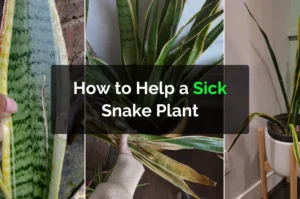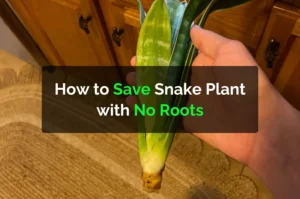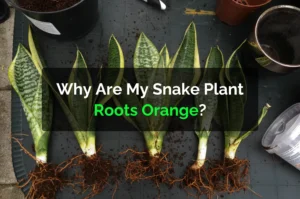Snake plants (also known as Sansevieria or Dracaena trifasciata) are popular houseplants because they are beautiful, easy to care for, and improve indoor air quality. But if you have a baby at home, you may wonder — are snake plants safe for little ones? In this article, we will explore whether snake plants are poisonous to babies, what risks they pose, and how to keep your baby safe if you have this plant at home.
What is a Snake Plant?
Snake plants are tall, upright plants with thick, green leaves that often have yellow edges or light green patterns. They are also called “mother-in-law’s tongue” and are loved for their low maintenance and air-purifying qualities. You’ll find them in many homes, offices, and even hospitals.
Are Snake Plants Toxic?
Yes, snake plants are considered mildly toxic to humans and pets. The plant contains a chemical compound called saponin, which can cause irritation when consumed. Saponins are produced by the plant as a natural defense against insects, fungi, and animals.
Is It Dangerous for Babies?
For adults, snake plants are only mildly toxic. However, babies are more sensitive, and even small amounts of the plant can cause stronger reactions. If a baby chews or eats any part of a snake plant, it can lead to symptoms like:
- Nausea
- Vomiting
- Diarrhea
- Drooling
- Mouth or throat irritation
While these symptoms are usually not life-threatening, they can be very uncomfortable for a baby. In rare cases, allergic reactions or choking on plant parts may also occur.
Why Are Babies at Higher Risk?
Babies explore the world through their senses, especially touch and taste. A crawling baby might grab a leaf and put it in their mouth without hesitation. Their immune systems and stomachs are not fully developed, which makes them more likely to have strong reactions to things that adults might handle easily.
Also, babies can’t clearly communicate what they’re feeling, which can delay noticing symptoms. This is why even mildly toxic plants like snake plants can become a concern when there’s a baby in the home.
What to Do If a Baby Eats a Snake Plant?
If you suspect that your baby has eaten part of a snake plant, stay calm and follow these steps:
- Remove the plant from the baby’s mouth – Try to take out any pieces of the leaf that may still be in their mouth.
- Rinse the baby’s mouth with water – Gently give them water to wash out any plant residue.
- Watch for symptoms – Look out for drooling, vomiting, diarrhea, or signs of discomfort.
- Call a doctor or poison control center – It’s always best to get medical advice, even if your baby seems fine.
- Do not make the baby vomit – This can make the situation worse.
In most cases, a baby will recover quickly with proper care. But fast action and medical help are important.
How to Keep Babies Safe Around Snake Plants
If you love snake plants but have a baby at home, here are some tips to enjoy your plants while keeping your child safe:
1. Place the Plant Out of Reach
Keep snake plants on high shelves or in hanging pots where babies can’t reach them. Make sure the plant is stable and won’t fall if pulled.
2. Use Baby Gates or Barriers
If you have plants on the floor or in low areas, use baby gates or indoor fences to block your baby’s access to them.
3. Supervise Play Areas
Make sure your baby doesn’t play near houseplants. Keep a close eye on them, especially when they’re crawling or exploring new areas of the home.
4. Teach as They Grow
As your baby gets older, start teaching them not to touch or eat plants. Use simple words like “no” and “not safe” to help them understand.
Are There Baby-Safe Alternatives?
If you don’t want to take any risk, you can choose houseplants that are completely non-toxic and baby-friendly. Here are some safe alternatives:
- Spider Plant
- Areca Palm
- Prayer Plant
- Baby Rubber Plant
- Boston Fern
These plants are not only safe for babies but also look great and are easy to grow indoors.
Final Thoughts
Snake plants are beautiful and helpful in many ways, but they are mildly poisonous and not completely safe for babies. The risk of poisoning is low, but it’s still important to be cautious. With the right precautions, you can still enjoy your favorite plant while keeping your baby safe and healthy.
Always remember — safety comes first when it comes to little ones. If you’re ever unsure, talk to a doctor or replace toxic plants with baby-friendly options. Your peace of mind is worth it.






